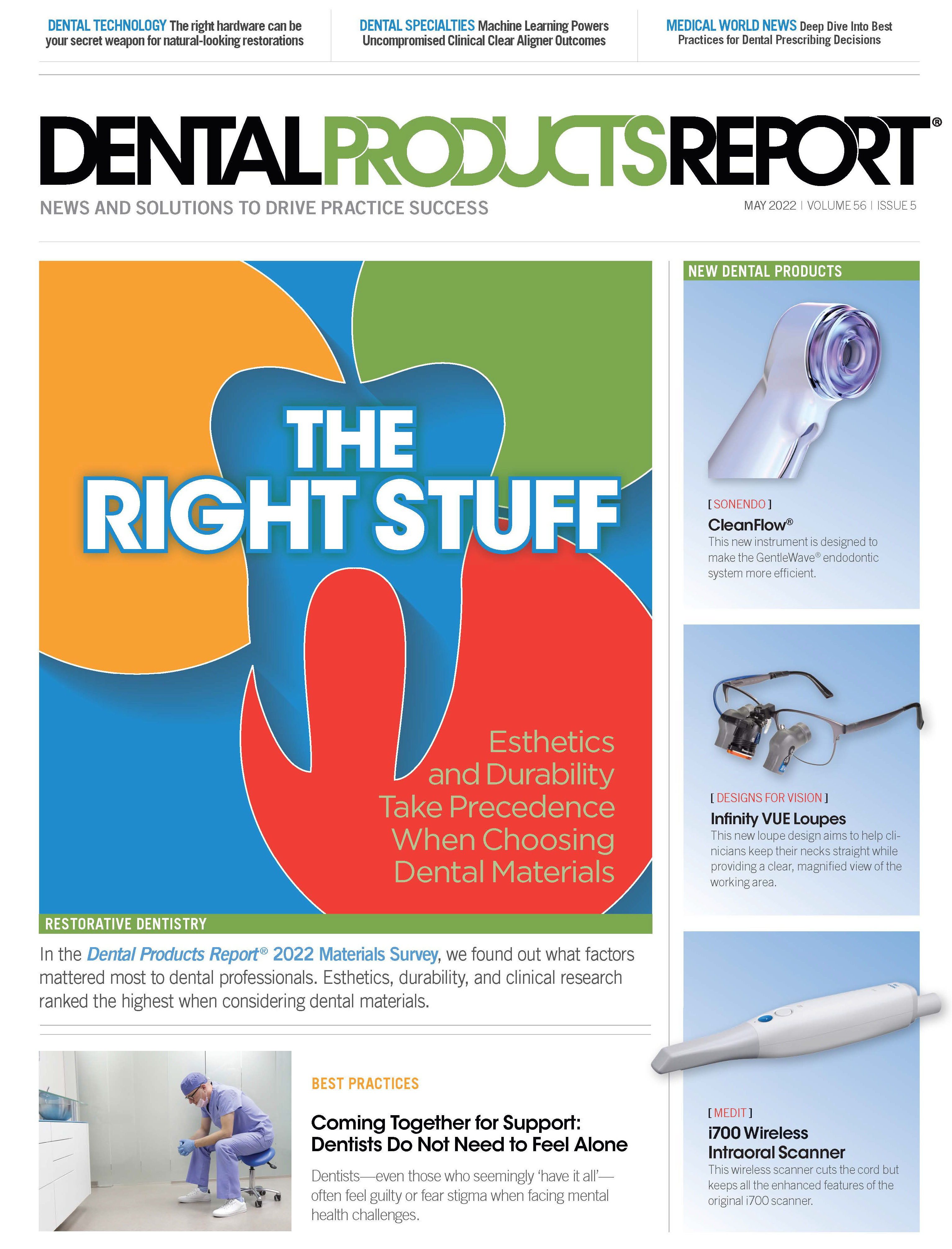In early February 2022, Gregori Kurtzman, DDS, began to use Nobio Infinix™ for his restorative dentistry. Infinix is an antimicrobial composite and is the first of its kind to fight bacteria continuously while acting as a restorative material. Dr Kurtzman sees Infinix as a great boon for his practice in the Washington Metro Area in Maryland.
Nobio Infinix
Infinix restoratives feature antimicrobial properties that are designed to protect restored dentition from recurrent caries by reducing demineralization, allowing the composite restorations to have extended life spans. The materials feature handling and finishing properties similar to leading dental composites while adding the long-term antidemineralization properties.
Nobio
844-463-4649 | infinix.com
“Long term, you’re going to see less recurrence,” says Dr Kurtzman. “We’re understanding more that bacteria in the mouth cause a lot of problems systemically; what we used to call plaque, we now call an oral biofilm because of the connection there. This is going to help decrease oral biofilm, or at least the biofilm that is going to cause some of these issues, including decay.”
Both Infinix Universal Composite and Universal Bond and Infinix Flowable Composite utilize Nobio’s proprietary, nonsoluble quaternary-ammonium silica (QASi™) particles. These QASi particles have many antimicrobial quaternary ammonium residues and are covalently bound to a silica core. This creates the composite material and is designed to fight bacteria by mere contact, without requiring a release to do so.
“It’s something that basically doesn’t have a life span,” says Dr Kurtzman. “It’s going to be there forever in the material. In a sense, it turns off bacteria so that the bacteria can’t replicate in the restoration.”
Dr Kurtzman says Infinix has utility in all restorations and restorative procedures, but it particularly can serve older patients, who may not be able to take as much care of their oral hygiene because motor coordination may falter with time.
“Unfortunately, many of those patients eventually wind up in nursing homes where their [oral] care is not that good. They’re not able to do it themselves, and the nursing home staff is not really doing it for them,” says Dr Kurtzman. “This really expands into those seniors [who] are basically at home. And [individuals] are living longer. I think products like this are going to help them maintain what teeth they do have, long term.”
Senior patients also run a higher risk of the oral systemic conditions that products like Infinix combat.
“One of the problems with seniors is that they’re very prone to pneumonia, and some of that is aspiration of this oral biofilm,” says Dr Kurtzman. “So, if we can kill the bacteria in the oral biofilm so that when they are ingesting and are inhaling it, it doesn’t cause those issues, that’s going to be great also. It’ll be a better quality of life for them when taking in mind that they’re not able to maintain these things on their own as well.”
Infinix can serve a variety of other patients as well, something Dr Kurtzman has found in his everyday practice.
“My joke is that the American diet is the worst diet in the world. It’s so full of sugar and fat, and we just consume a lot of sugar. That’s what forms acids that break down these fillings or the margin between the filling in the tooth,” says Dr Kurtzman. “If we could put something there that’s going to prevent the bacteria in those areas, we’re going to have teeth that are going to last longer. Fillings are not going to get progressively bigger over the patient’s lifetime; we can maintain that better. I think [individuals] will be able to maintain their teeth longer and start that out with pediatric fillings.”
Infinix is still relatively new on the market, and time will support its continued use in restorations. Dr Kurtzman hopes to see the expansion of this antimicrobial technology in other dental areas and is excited to continue using this antibacterial composite.
“It’s not like having a composite sort of like everyone else’s but just tweaked a little,” says Dr Kurtzman. “This is a totally different product. It really has a lot of potential here to expand that technology into other areas and other dental products that we’re using, so we can basically preserve [teeth] as long as possible.”

